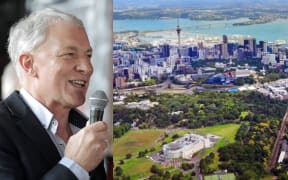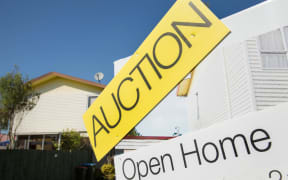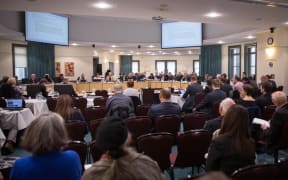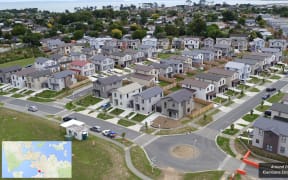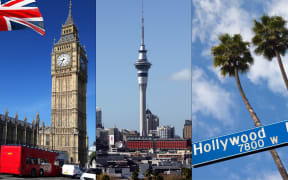Auckland has held onto its spot as one of the most expensive cities in the world to buy a house, and another New Zealand city is quickly rising through the ranks to join it.
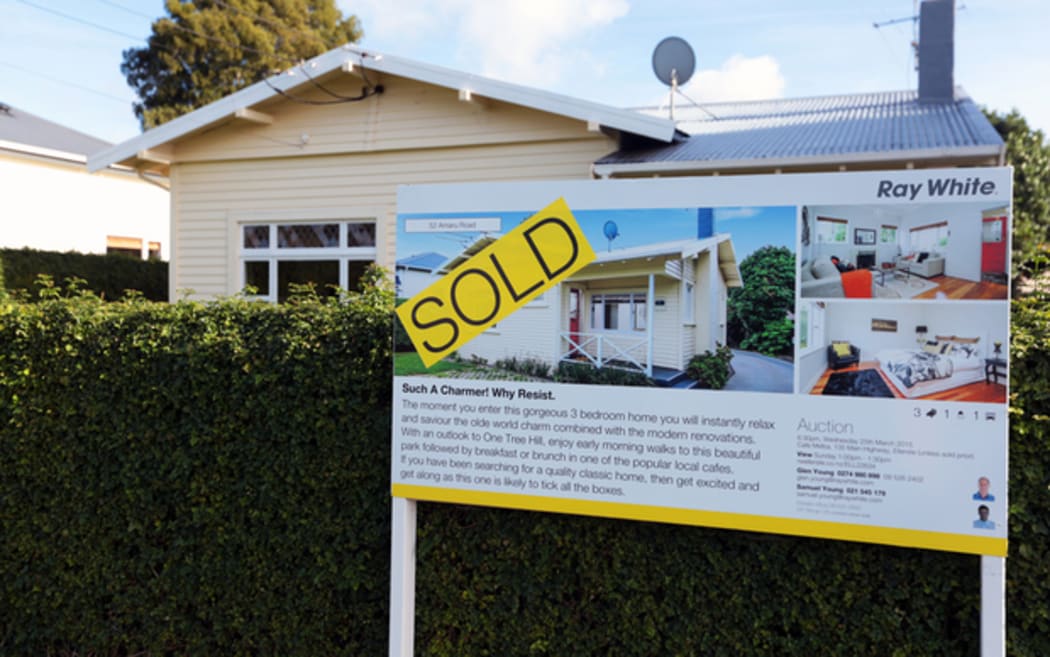
The survey - which compares prices to income in 404 cities - found that only Hong Kong, Sydney and Vancouver were more expensive than Auckland. Photo: RNZ
The annual Demographia survey, which compares prices to income in 404 cities, has ranked Auckland's housing market the fourth least affordable in the world, the same as last year, with prices at 10 times the median income.
That's slightly higher than the 9.7 recorded last year, as rampant house price growth outpaced wages.
Only Hong Kong, Sydney and Vancouver were more expensive.
The survey found the median price soared to $830,800, and with a median income of $83,000, Auckland's price to income ratio stood at 10, which is considered severely unaffordable.
A ratio of three or less is considered affordable.
Hugh Pavletich, one of the report's authors, said Auckland's extreme house prices were a sign of failure, not success.
"It is actually a very serious situation. That's double what a severely unaffordable market should be (5.1 or over). It's a crisis situation in Auckland."
Mr Pavletich told Morning Report when National took office in 2008, house prices in Auckland were 6.4 times the median income.
He said if the government had been moderately competent, it would have worked to keep prices reasonable.
"And if they had actually gone on and actually done something, and actually quietly reduced prices over the last eight or nine years, our house prices would be about four times incomes now, and roughly about $330,000 for Auckland."
Mr Pavletich urged the government to free up land supply and called on Prime Minister Bill English directly to lead all the political parties towards a consensus on how to deal with Auckland's high housing costs.
But Mr English told Morning Report that another talking shop would not change the situation.
"What it needs is what's happening, and that is changes to the Resource Management Act, to make the processes quicker, the Auckland Council already starting to do what it's really starting to do quite well - and that is executing the processes fast, the building consents, the subdivisions consents - and the government cranking up its own building programme."
While Auckland remains a drawcard for people, the chief executive of the Employers and Manufacturers Association, Kim Campbell, said it was getting more difficult to attract and hold on to workers as house prices escalate.
"We've got anecdotal evidence of people just quitting, I'm not going to commute, drive this far anymore, find a job closer to home," Mr Campbell said.
"It does make it difficult for people to fill a quota of staff and also get people to move into the city. Clearly there is a real problem, particularly within New Zealand."
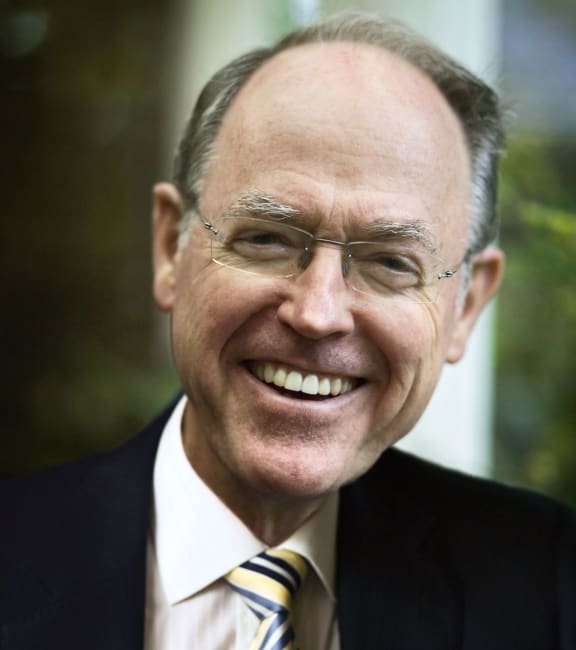
Don Brash Photo: ACT Party
Former National Party leader Don Brash said the government's attempts to get more houses built quickly had failed, despite promises in 2008 by previous prime minister John Key to fix it.
Dr Brash said the solutions were simple.
"The rationing of land has meant that residential zoned land became very expensive indeed. Now that's partly a local government issue, but it seems to me the central government should have put much more pressure on Auckland Council to fix this problem."
New Zealand Initiative executive director Oliver Hartwich said changes to council funding were also essential to make it easier for them to finance council infrastructure.
"You have to give them the means to do that. You have to give them a share of the tax take or at least let them participate in the tax revenue increase. And we're not doing that either."
Critics doubt these solutions will automatically make housing cheaper, arguing what drives the market is existing prices and people's expectations.
The building boom has also brought its own problems.
Westpac economist Satish Ranchhod said the construction sector was flat out, and the cost of getting workers, materials and equipment kept rising.
"Resource constraints are playing some role. Construction firms are highlighting difficulties getting the labour they need and that may be one factor that's delayed the construction that we need to see."
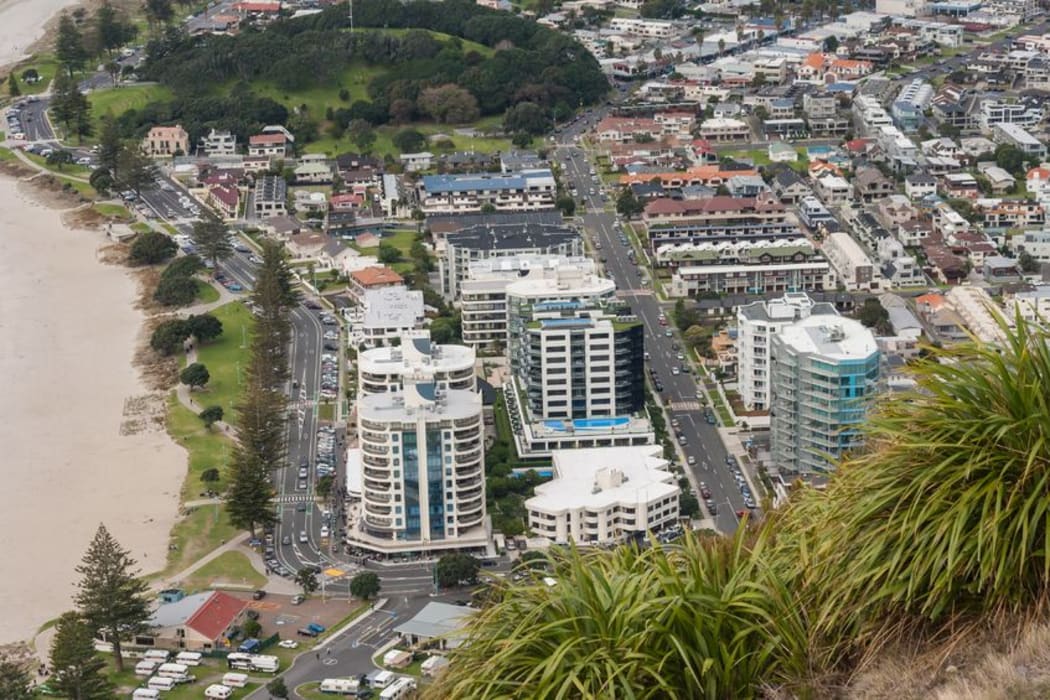
Tauranga house prices are now 9.7 times income, up from 8.1 a year ago. Photo: 123RF
But Auckland's crown as New Zealand's most unaffordable city was facing a challenger.
Tauranga's house prices were now 9.7 times income, up from 8.1 a year ago, due to a 20 percent surge in values, while wages only edged up.
The other main urban centres are also classified as severely unaffordable - Hamilton at 6.2, Christchurch 5.9, Wellington 5.8, and Dunedin 5.4.
The best is Palmerston North at 4.7 - which makes it only seriously unaffordable.
Overall, housing in New Zealand is rated as severely unaffordable, with a median multiple of 5.9.

